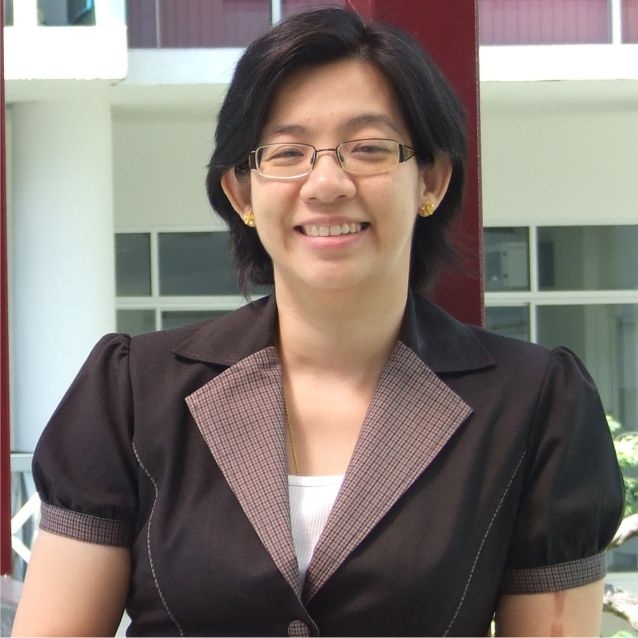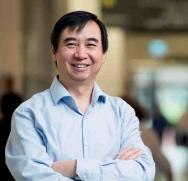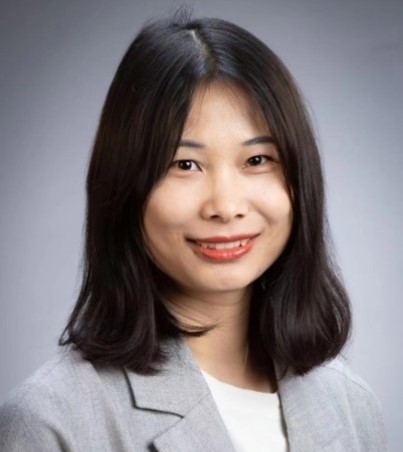Meet a CIS Member - Ying Bi
Meet a CIS Member
Meet: Ying Bi, 2024 WCI subcommittee chair
What is your title, and place of work? (or Technical Field of Research)?
I am a distinguished professor with the School of Electrical and Information Engineering and the computational intelligence lab at Zhengzhou University (ZZU), China.
How long have you been a member of CIS and what was the reason you chose to join IEEE CIS?
I have been a CIS member for more than five years. I joined initially the CIS community as a graduate student member and become a member after my Ph.D. A significant benefit to join CIS is to have discount for conference registration. I have registered and attended several CIS sponsored conferences, including WCCI/CEC from 2018 to 2023, with reduced registration fees. I have known many senior academics and CIS members by attending these conferences. As a student member, I have also successfully applied for the IEEE CIS Student Travel Award for attending WCCI 2018 in Brazil.
What Computational Intelligence Society committee do you serve?
Currently, I am the chair of the Women in Computational Intelligence (WCI) subcommittee (2024), workshop chair of WCCI/CEC 2024, vice-chair of the IEEE CIS Task Force on Evolutionary Computer Vision and Image Processing, and member of the IEEE CIS Task Force on Evolutionary Computation for Feature Selection and Construction. I was a member of WCI subcommittee (2023), a co-organiser of the IEEE CIS Summer School on Computational Intelligence in Zhengzhou (2023), and a local organizing committee member of CEC 2019.
What have you learned from your experience and how has it helped you professionally?
I have learned a lot from my experiences in attending/ organizing various CIS activities. First, it enables me to know more about the CIS society in terms of the structure, the people, and the operational process. Second, it provides a good chance to meet many academics and researchers who are supportive and friendly to help in our research, career, and life. Third, it develops our skills to communicate with different individuals and work with them towards the same goal.
What has been the most fun/rewarding thing about being a volunteer for the IEEE Computational Intelligence Society? What have you enjoyed the most?
My first major volunteer role for CIS was the organising committee member of IEEE CEC 2019, which was held in Wellington, New Zealand. At that time, I was a Ph.D. student and honored to have the chance to be involved in organizing the conference. I learned the experiences of conference organising, which helped me a lot in organising the IEEE CIS Summer School in Zhengzhou in 2023. In addition, the Wechat Public Account created by me for advertising CEC 2019 becomes an important social media with 4000+ followers for advertising some activities and sharing new research in China. Thus, I think the most rewarding thing is to provide opportunities to young researchers to participate in the volunteer jobs and build their capabilities step by step.
Now, I am taking a new volunteer role – the chair of the WCI subcommittee in 2024. I will be rewarded with helping build a gender-diversified environment in CIS conferences by developing, promoting, organising, and running activities to achieve this goal. The activities will be held in CIS conferences, and you are more than welcome to join.
Tell us something about you that we don't know.
Starting from 2024, I am taking more volunteer jobs in IEEE CIS, including the associate editor for the journals of IEEE Transactions on Evolutionary Computation and IEEE Transactions on Artificial Intelligence. As a young female researcher, I really appreciated these opportunities to serve for the community. I am looking forward to having more connections with CIS and I will try my best.
Chapters Committee
Chapters Subcommittee Chair

Sansanee Auephanwiriyakul
Computer Engineering Department
Chiang Mai University
sansanee@eng.cmu.ac.th
IEEE CIS Member-Get-a-Member Program
The IEEE CIS MGM program is your opportunity to share the value of IEEE CIS membership with your friends and colleagues. Not only can you take pride in supporting IEEE CIS, but you can also earn awards on qualifying referrals who join.
How the IEEE CIS MGM program works:
- Simply submit your referral online to invite your friends and colleagues to join.
- If you use the online form, your referral will automatically receive an email inviting them to join IEEE.
- Make sure to have your referral include your name and 8-digit member number in their application. This is the only way we can track your referrals.
- MGM awards for the 2020 membership year (recruiting activity from 16 August 2019 to 15 August 2020) will be sent by 1 October 2020 to the email address on your member record. Please ensure your email address is up to date in your profile to ensure you receive this and other important membership information. Your MGM award may only be used by you and cannot be transferred.
With this program, you could earn up to US$15 in awards that can be used for IEEE dues, Society fees, and/or the purchase of books and publications (excludes merchandise and products).
IEEE CIS MGM Restrictions:
- This program is openonly to Professional members (Student members, Graduate members, society affiliates are not eligible).
- You can earn US$5 for each Professional member recruited.
- The maximum amount you can earn during the membership year is US$15.
- Completed referral applications must:
a) Be received with full dues payment by IEEE before 15 August 2019
b) Include the recruiter's email address affiliated with their IEEE member account in the form found at this link.
- Applications received without a recruiter's valid email will be disqualified; there will be no retroactive qualifying of recruiters.
- Individual awards:
a) All award amounts are quoted in US dollars.
b) Referral awards earned are not redeemable for cash.
c) Awards will be valid toward Society fees.
d) Referral awards must be used at the time of renewal and will expire on 31 December 2020.
e) The IEEE CIS Member-Get-a-Member award cannot be combined with any other membership discounts or promotions.
f) Your IEEE CIS MGM award may only be used by you and cannot be transferred.
- Individual awards are subject to federal laws, and certain countries are not eligible.
Call for Project Proposals for IEEE CIS Chapters
The IEEE Computational Intelligence Society (CIS) invites CIS Chapters to submit projects that focus on any of the following topics:
- Interactions with local industry (e.g., promoting membership within people working at a local company).
- Promoting diversity and inclusion (e.g., increasing the participation of women and indigenous groups).
- Mentorship and outreach programs.
- Organization of regional forums focused on topics related to Computational Intelligence.
- Ethical and social implications of computational intelligence.
Each project proposal must include the following:
- A short description (a maximum of 2 pages) of the activities to be developed (mentioning the topic(s) on which it will focus (from the above list)).
- A justification of how the proposed activities will contribute to the topic(s) selected from the above list.
- The total cost of the project (not to exceed $4,000 US) indicating the way in which this money will be used.
- It is worth noting that these funds CANNOT be used to organize Summer Schools or to support conferences. However, it is possible to use these funds to finance events and activities fully organized by a CIS chapter which run in parallel with a conference or a Summer School or act as a satellite event for them.
Who is eligible?
- Any CIS Chapter which is currently active and had organized a minimum of 2 events in 2023. Such events must have been properly reported to the IEEE (using Vtools) AND to the CIS Chapters Chair Sansanee Auephanwiriyakul at sansanee@eng.cmu.ac.th by 30 April.
- CIS Chapters which were inactive during 2023 or are in the process of being dissolved (or have been dissolved) by the IEEE are not eligible to participate.
How to participate:
- Proposals must be submitted by using the IEEE CIS Chapter Project Proposals form.
- The deadline for submitting proposals is 30 April.
Results:
- Projects to be financed during 2024 will be selected based on the quality of the proposal, the number of events reported during 2024, and their expected impact. The winning chapter chairs will be notified by email by 15 May 2024.
- The funds must be spent by 31 December 2024.
- All the Chapters with projects approved will be required to submit a report within two months after the end of the event and no later than 15 January 2025. The report must include photos of the activities that took place as part of the project as well as a summary of how the money was spent.
2024 IEEE CIS Awards Committee
Awards Committee Chair

Awards Committee Chair
Members
| Name | Affiliation | Country/Region | |
| Bing Xue (Solicitation Chair) | Victoria University of Wellington | New Zealand | |
| CT Lin | University Technology of Sydney | Australia | |
| Marios Polycarpou | KIOS Research and Innovation Center of Excellence | Cyprus | |
| Sanaz Mostaghim | Otto von Guericke University of Magdeburg | Germany | |
| Keeley Crockett | Manchester Metropolitan University | UK | |
| Zeng-Guang Ho | State Key Laboratory of Management and Control for Complex Systems | China |
